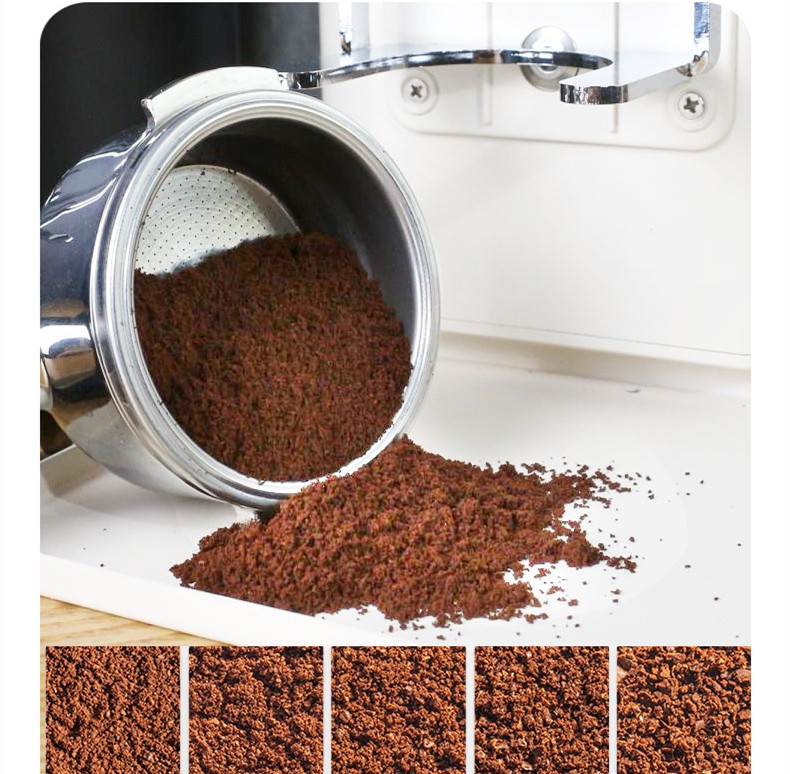The advantages of the fully automatic coffee roaster are mainly reflected in the following aspects:
1. Easy to operate and lowers the technical threshold
The fully automatic coffee roaster simplifies the complex steps that require manual adjustment of temperature, time, air volume, etc. in traditional roasting through preset programs and intelligent control. Users do not need to have professional baking experience. They only need to select the preset mode or input the basic parameters to complete the operation. It is suitable for beginners or non-professionals to quickly get started, and at the same time reduces the risk of baking failure caused by human operational errors.
2. The baking quality is stable and the flavor consistency is high
The equipment monitors and adjusts the roasting parameters (such as temperature curves, hot air circulation, etc.) in real time through precise sensors and algorithms to ensure that the roasting conditions of each batch of coffee beans are exactly the same. This standardized process avoids subjective differences in manual operations, ensuring that the roasted coffee beans maintain a high degree of uniformity in flavor characteristics such as color, aroma, and acidity, meeting the commercial scenario’s demand for product stability.
3. Efficiency improvement, saving time and labor costs
The fully automatic baking machine supports continuous operation, can preset multiple baking programs and switch them automatically without the need for manual supervision, significantly reducing the baking time of a single batch. At the same time, automated processes reduce manual intervention steps, lower the reliance on skilled roasters, and are particularly suitable for coffee stores or processing plants that require mass production. They can effectively lower labor costs and increase production capacity.
4. Data-driven management and traceability
The equipment is usually equipped with a data recording function, which can store in real time key parameters such as temperature, time, and bean temperature changes during the baking process, and generate traceable baking logs. This function not only enables users to analyze baking effects and optimize processes, but also provides a basis for quality control in commercial production, meeting the requirements of food safety and quality management.
5. Safety performance optimization
The fully automatic baking machine reduces operational risks through multiple safety protection designs, such as overheat protection, automatic power-off, and fault alarm. For instance, the equipment can automatically detect abnormal temperatures or mechanical failures and stop running, avoiding potential safety hazards caused by operational errors or equipment malfunctions. It is particularly suitable for commercial environments with high-intensity continuous operations.
6. Flexibility and scalability
Modern fully automatic roasters support user-defined roasting curves. By adjusting parameters, they can simulate different styles such as light roasting, medium roasting, and dark roasting, and even develop exclusive roasting schemes for specific coffee bean varieties. In addition, some models support integration with Internet of Things (IoT) systems to achieve functions such as remote monitoring and program upgrades, reserving space for future technological iterations.
7. Reduce human errors and enhance the utilization rate of resources
The automated process reduces energy waste by precisely controlling heat and air volume, while avoiding raw material loss caused by overbaking or underbaking. For instance, the equipment can dynamically adjust the heating power based on the feedback of the bean temperature to ensure that each coffee bean is fully heated without burning, thereby enhancing the utilization rate of raw materials and economic benefits.
The fully automatic coffee roaster, through intelligent, standardized and safe design, has solved the problems of complex operation, unstable quality and low efficiency in traditional roasting. It is especially suitable for commercial users who pursue large-scale and standardized production. Its core value lies in transforming the roasting process into a replicable standardized procedure while preserving the flavor potential of coffee beans, providing technical support for the efficient development of the coffee industry.


